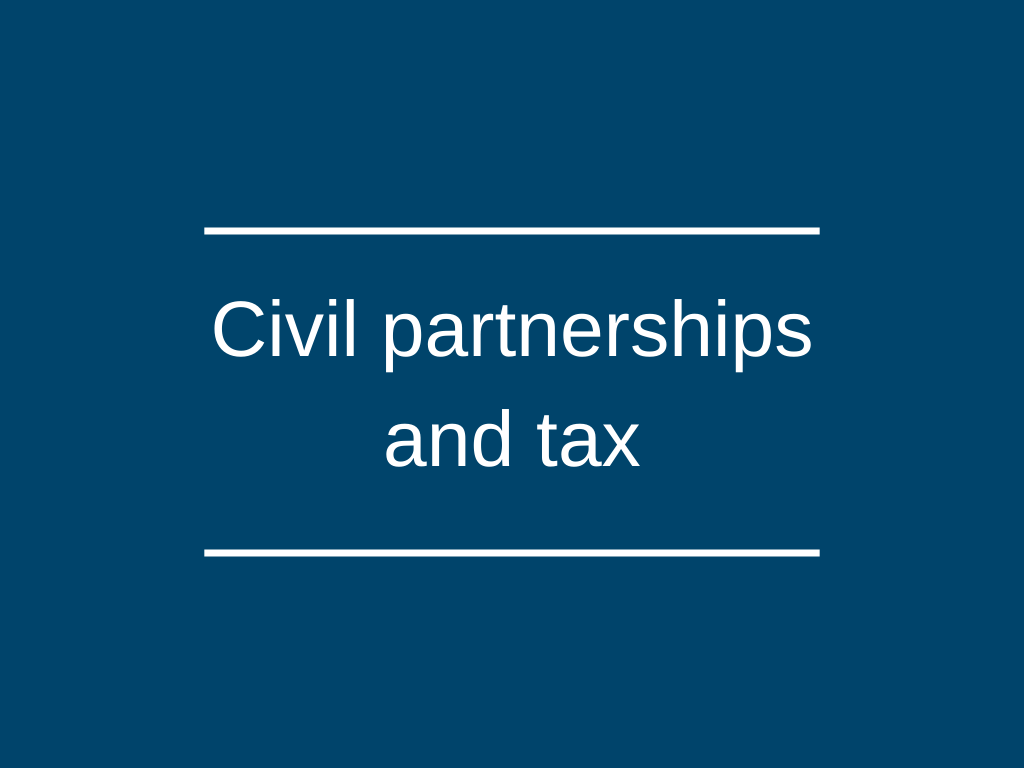
Mixed-sex couples in England and Wales have been able to register their intent to enter civil partnerships since 2 December 2019.
This follows former Prime Minister, Theresa May’s announcement in October 2018, that the law would change. At time of writing, the first ceremonies have already taken place.
Latest data from the Office for National Statistics (ONS) shows that marriage rates between men and women are at a historical low. Many more couples are choosing simply to cohabit with one another.
The new rules mean that opposite-sex couples who enter into civil partnerships can access all of the same tax benefits, entitlements and financial protection as married couples and same-sex civil partners.
Civil partners entitled to marriage tax allowance
Civil partners are entitled to claim the ‘marriage tax allowance’. This means that if the lower earning partner is not utilising their full personal allowance (£12,500 for 2019/20), they can transfer up to £1,250 of it to the higher earning partner. Your personal allowance is the amount you can earn before paying tax.
The lower earning partner must be a non-taxpayer. The higher earning partner must be a basic-rate taxpayer, earning less than £50,000.
The allowance can reduce the tax paid by the higher-earner by up to £250, for the current tax year.
Inheritance Tax exemption for civil partners
Those who formalise their civil partnerships after 31 December 2019 will benefit from the inheritance tax (IHT) exemption. A surviving partner (as long as they are UK-domiciled) will not pay IHT should they inherit the first to die’s estate.
The surviving partner can also effectively double the amount that they are able to leave to family and friends upon their death, without having to pay IHT. This is achieved by claiming the first to die’s unused nil rate band. Should the first to die leave their entire estate to the survivor, nil rate bands can be combined. This means that, when the second partner dies, up to £650,000 can be passed on tax-free.
The same rules apply to the newer residence nil rate band. Consequently, civil partners could ultimately benefit from a combined tax-free allowance of up to £1million as of 6 April 2020.
It is worth bearing in mind that if anyone in a civil partnership, without children, dies without making a will, the survivor will automatically inherit their estate. This includes their home, if they own it. Wills prepared before the partnership was formalised will be voided by the partnership itself, as with marriage. Therefore, new wills should be drafted as soon as possible.
Inheriting an ISA from a civil partner
Civil partners can inherit their partner’s tax-free ISA allowance, equal to the value of any ISAs held by the deceased, by making use of the Additional Permitted Subscription (APS). This ensures that the tax-efficient wrapper afforded by the ISA is not forgone when transferred to the survivor.
Capital Gains Tax on ‘inter-transfers’
Cohabiting couples who transfer capital assets between one another must pay capital gains tax (CGT) where a gain is realised.
For civil partners and spouses, however, this is not the case. Instead, these transactions do not attract a CGT charge. Civil partners can therefore benefit from being able to move assets freely from one to the other without incurring a charge to capital gains tax.
Pensions for civil partners
Both private and occupational pension schemes must offer the same rights to civil and married partners. Furthermore, the surviving partner may be able to claim an increased state pension, or part of one if they are not eligible for their own. The amount they are entitled to will be based on the deceased’s national insurance contributions (NICs).
How can George Hay help?
The range of personal tax charges, rates of tax and allowances that exist is enormous. Which of these applies to you will depend upon your circumstances.
At George Hay, we pride ourselves on being personable and forward-thinking. We place importance on understanding what really matters to you in respect of tax planning and protecting what you have worked hard for.
Careful tax planning is essential for any individual, with many opportunities arising to ensure that you obtain maximum tax savings.
To speak to one of our tax advisers about personal tax planning, contact us today.